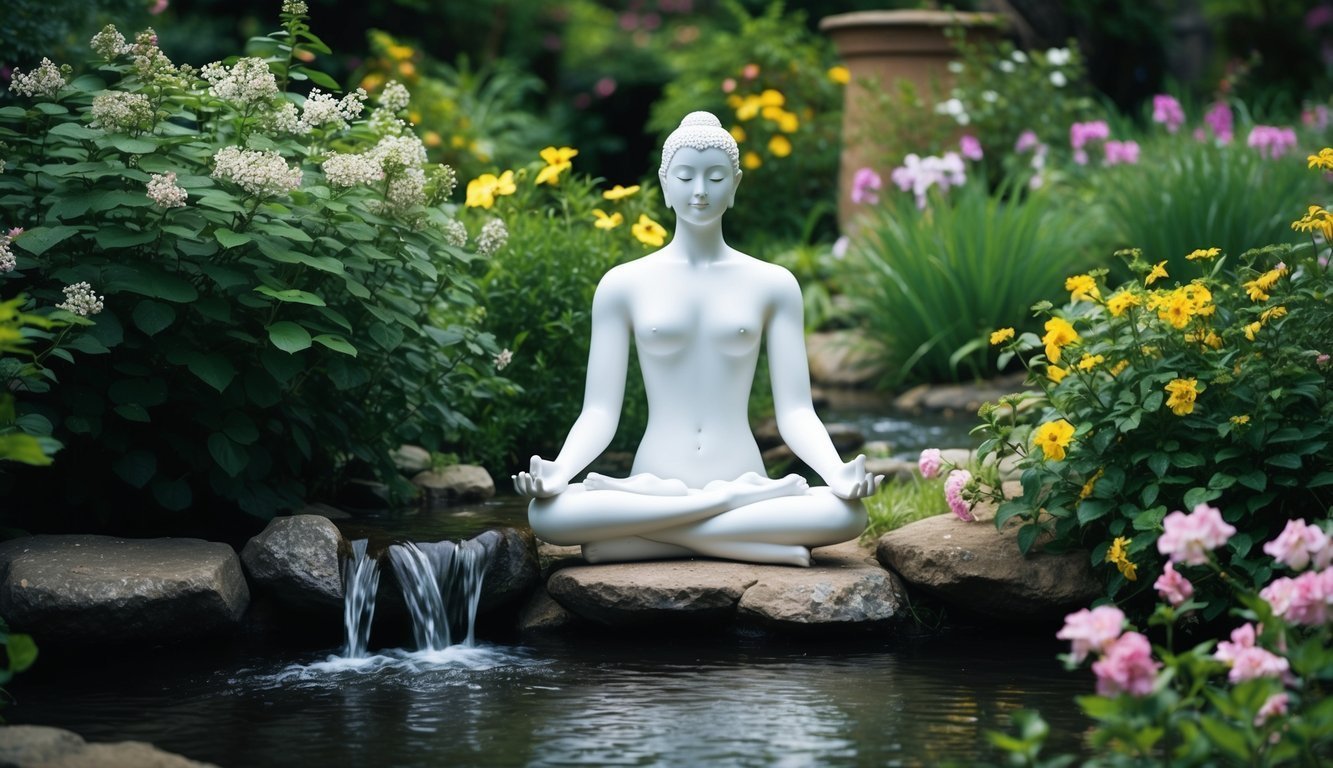PsychNewsDaily Publishers
100 Summit Drive
Burlington, MA, 01803
Telephone: (320) 349-2484
PsychNewsDaily Publishers
100 Summit Drive
Burlington, MA, 01803
Telephone: (320) 349-2484
Meditation enhances mental well-being by reducing stress, improving focus, and fostering emotional health while also boosting cognitive functions such as memory and attention span.

Meditation is a practice designed to enhance mental clarity, emotional stability, and self-awareness. With roots in ancient traditions, it encompasses a variety of techniques tailored to diverse preferences and objectives.
The origins of meditation trace back thousands of years to ancient Eastern spiritual practices. Its earliest documentation was found in Vedic texts from India, dating around 1500 BCE. Later, Buddhism popularized meditation as a means to attain enlightenment.
By the 20th century, meditation gained prominence in Western societies. Maharishi Mahesh Yogi introduced Transcendental Meditation in the 1960s, while Jon Kabat-Zinn was pivotal in introducing secular mindfulness practices during the 1970s.
Currently, meditation is celebrated for both its psychological and physiological advantages. Scientific studies have substantiated its positive effects on stress reduction, emotional regulation, and cognitive capabilities.
Meditation spans a multitude of techniques, each offering unique focal points and benefits. Mindfulness meditation emphasizes observing thoughts and sensations without judgment and serves as the foundation for Mindfulness-Based Cognitive Therapy, aimed at preventing depression relapse.
Transcendental Meditation involves the silent repetition of a mantra to achieve profound relaxation. Conversely, loving-kindness meditation nurtures compassion for oneself and others. Additionally, yoga often integrates meditation, merging physical postures with mindfulness practices.
Other variations include body scan meditation, focused attention meditation, and open monitoring meditation, each offering a distinct approach to fostering awareness and inner tranquility.

Meditation provides a wealth of benefits for both mental and physical well-being. Regular engagement in meditation can significantly enhance mental clarity and improve physical health markers.
Meditation profoundly impacts mental health, demonstrating the ability to reduce depression symptoms and alleviate anxiety disorders. Research indicates that consistent meditation practice lowers cortisol levels, the stress hormone, leading to improved mood and emotional regulation.
Cognitive functions also see enhancements through meditation. Practitioners commonly experience longer attention spans and better memory retention. The practice strengthens the brain’s neural connections, potentially decelerating age-related cognitive decline.
Furthermore, meditation techniques assist individuals in managing intrusive thoughts and negative emotions, making them particularly advantageous for those experiencing chronic stress or trauma. By cultivating mindfulness, individuals gain better control over their emotional responses in challenging situations.
The benefits of meditation extend into the realm of physical health as well. Consistent practice can lower heart rates and blood pressure, diminishing the likelihood of cardiovascular issues. These physiological changes result from meditation’s ability to activate the parasympathetic nervous system, fostering relaxation and decreasing inflammation.
For those suffering from chronic pain, meditation often offers relief by changing pain perception and enhancing coping skills. Individuals dealing with conditions such as fibromyalgia or arthritis report reductions in pain intensity and improved quality of life through regular meditation.
Moreover, sleep quality can improve with regular meditation. Those facing insomnia frequently find themselves falling asleep more swiftly and enjoying deeper sleep, which, in turn, bolsters overall health by enhancing immune function and daytime energy levels.
Meditation also positively influences the immune system. Studies reveal increased antibody production and enhanced immune cell function in those who meditate regularly, leading to better illness resistance and quicker recovery times.

In-depth research has illuminated the significant effects of meditation on the brain and mental functions. Studies indicate notable neurological changes and improved psychological functioning among regular practitioners.
Research on meditation has documented astonishing alterations in brain structure and function. Neuroimaging studies show increased gray matter density in areas linked to learning, memory, and emotional regulation.
Regular practice fortifies the neural pathways tied to focus and attention, resulting in enhanced cognitive performance and improved executive functions.
Meditation also affects the autonomic nervous system, diminishing stress responses and fostering relaxation. These physiological changes contribute to lower blood pressure, decreased heart rates, and better immune responses.
Meditation significantly influences mental health and emotional wellness. Research shows its success in alleviating symptoms of anxiety and depression.
Mindfulness practices bolster emotion regulation abilities, enabling individuals to approach challenges with greater calmness, which translates into improved stress management and resilience.
There is evidence that meditation increases compassion and acceptance, nurturing healthier relationships and social interactions. It also enhances self-awareness and introspection.
Moreover, regular practice improves attention spans and concentration, leading to better performance across various cognitive tasks and everyday activities.

Integrating meditation into daily routines can significantly boost well-being and self-awareness. Consistent practice aids in developing mindfulness and honing stress management techniques.
Begin by allocating a specific time each day for meditation, with early mornings frequently being ideal since the mind is typically more clear. Start with short sessions of 5 to 10 minutes, gradually extending them as you become more comfortable.
Select a quiet and comfortable space, free from distractions. This space could be a corner of your bedroom or a designated meditation area. Regularly returning to the same location can help prime the mind for practice.
Explore different meditation techniques to discover what resonates most with you, including breath awareness, body scanning, or loving-kindness meditation. For beginners, apps and guided recordings can provide helpful structure.
Common difficulties encountered include restlessness, drowsiness, and struggles with concentration. Recognize these as normal components of the meditation journey.
If your mind wanders, gently redirect your focus back to your breath or the point of concentration.
Discomfort can manifest during longer sessions. If so, adapt your posture or utilize supportive cushions to alleviate this.
For those who struggle with sitting still, try incorporating moving meditations like walking or tai chi.
A lack of time is a common concern as well. Address this by integrating mindfulness into your everyday life.
Practice while commuting, doing household chores, or during breaks at work. Even brief moments of mindfulness can accumulate meaningful benefits over time.